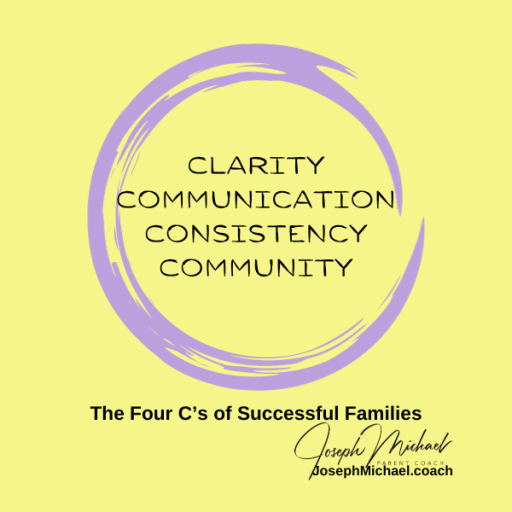
Creating a Tranquil Home: Embracing Peacefulness in Family Life

Creating a serene and loving home environment can feel like an elusive dream in today’s fast-paced world. But imagine a household where calmness prevails, conflicts are resolved with compassion, and every family member feels valued and understood. The key to unlocking this harmonious haven lies in embracing the virtue of peacefulness and practicing the Four C’s of Successful Families. Join us as we explore simple yet profound ways to cultivate peacefulness in family life, transforming your home into a sanctuary of love and tranquility.
The virtue of peacefulness is fundamental in family life, creating an environment where love, respect, and understanding flourish. Here are some ways peacefulness can manifest within a family:
Open Communication
Open and honest communication is key to maintaining peaceful relationships within the family. When family members feel heard and understood, it reduces misunderstandings and conflicts.
Conflict Resolution
Peacefulness involves resolving conflicts calmly and respectfully. Encouraging family members to express their feelings and work through disagreements without resorting to anger or aggression fosters a harmonious home environment.
Quality Time
Spending quality time together as a family strengthens bonds and promotes a sense of unity and tranquility. Activities such as family meals, game nights, and outings provide opportunities for connection and mutual enjoyment.
Mutual Respect
Respecting each other’s opinions, boundaries, and individuality is essential for a peaceful family life. When family members feel respected, they are more likely to reciprocate with kindness and consideration.
Stress Management
Encouraging healthy ways to manage stress, such as exercise, meditation, or hobbies, helps maintain a peaceful atmosphere at home. A calm and composed approach to stress can prevent it from disrupting family harmony.
Supportive Environment
Creating a supportive and nurturing environment where each family member feels valued and appreciated contributes to peace. Encouragement and assistance during difficult times strengthen family ties and foster a sense of security.
Practicing Forgiveness
Forgiveness is a crucial aspect of peacefulness. Holding onto grudges can lead to ongoing tension and discord. By practicing forgiveness and letting go of past hurts, family members can move forward with a clean slate and renewed commitment to peaceful coexistence.
Leading by Example
Parents and guardians play a vital role in modeling peaceful behavior. By demonstrating patience, empathy, and calmness in their interactions, they set a powerful example for children to emulate.
Incorporating these practices into daily family life can create a serene and loving home environment where everyone feels safe, supported, and cherished. By nurturing the virtue of peacefulness, families can build stronger, more resilient relationships that withstand life’s challenges.
Joe is a husband, father, grandfather, author, speaker, educator, course creator, and parent/family coach.
He helps parents develop unity, find clarity, communicate, and develop consistency in their parenting with the Four C’s of Successful Families. You can find his work on social media.
In addition, the Four C’s newsletter is enjoyed by many as it encourages parents to self-care, build their relationships with their partners, and raise their children.
And he loves to golf!












